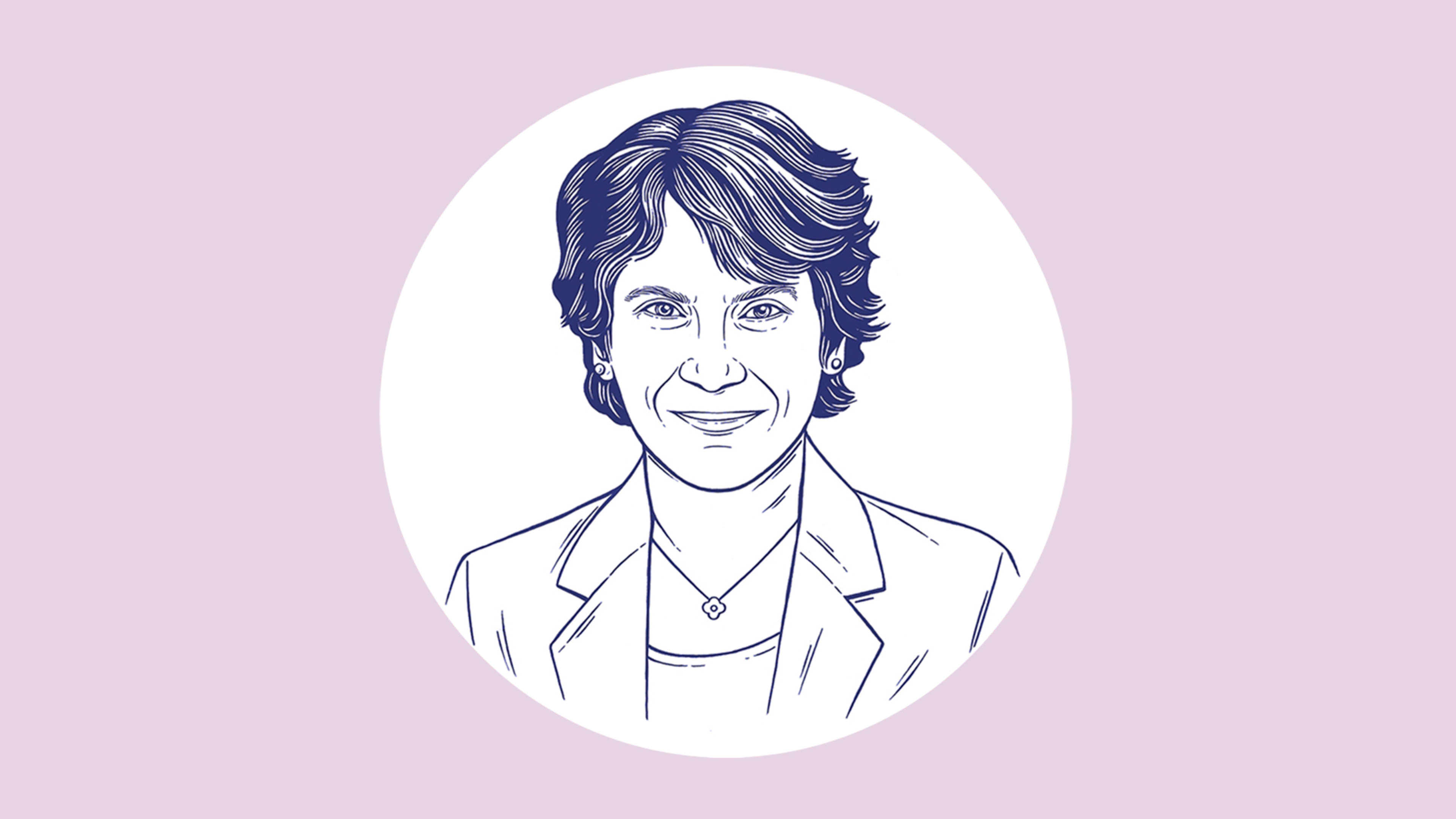“I had no idea people would have to pronounce this when I coined it—it’s a mouthful!” says Carolyn Bertozzi of the term she invented to describe the scientific breakthrough that won her the 2022 Nobel Prize in Chemistry (shared with Morten P. Meldal and Karl Barry Sharpless). “Bioorthogonal” chemistry refers to methods of performing chemical reactions inside living cells, animals, or people—rather than in beakers, flasks, and test tubes. “In the 1990s,” she explains, “we had all these ideas for ways you could study biology and make new kinds of medicines if you could design reactions where the chemicals totally ignore the biological system, but when they see each other, boom, they react. ‘Orthogonal’ means ‘no interaction,’ so ‘bioorthogonal’ means ‘no interaction with biology.’”
The technology can be used in medical imaging—attaching chemical markers to a tumor, for example, so that it’s visible in a scan. Or it can be used to append a chemical target to particular cells to help deliver a drug or radiation that becomes active only where it is needed. Bertozzi’s lab at Stanford currently uses bioorthogonal chemistry to study sugars that are produced on the surface of cells (a discipline called glycobiology) and show how they can shield cancer from the immune system. “It’s an area of biology that’s been kind of overlooked,” Bertozzi says. “But it is central to cancer, and to inflammatory and autoimmune diseases, too.” An experimental drug based on this research, which works “like a lawn mower” to cut the sugar “camouflage” off cancer cells, is in Phase 1 clinical trials and was developed by Palleon Pharmaceuticals, where Bertozzi is a cofounder. Her hope is that “glyco-immunology” will improve outcomes for the majority of patients who don’t respond to current immunotherapies.
Bertozzi has cofounded 10 other startups, as well, including Redwood Bioscience (antibody-drug conjugate development, acquired in 2014), InterVenn (liquid biopsies), Lycia Therapeutics (developing targeted degraders of extracellular proteins), and Grace Science (developing medicines for rare disease). But she says that her primary job is “to run a lab and train students and make discoveries and share them with the world.” While she has been blessed with a welcoming work environment, Bertozzi says that “being open as a gay person comes with a lot of risk—but less so now than when I was younger, and certainly less so in the United States and in the Bay Area. But there are other locations where people risk their life by coming out. So, I do think it’s incumbent on me to be a voice for social justice and create opportunities for people who might not otherwise get them.”
This story is part of Fast Company’s Most Creative People in Business for 2023. Discover the full list of groundbreakers who’ve achieved something meaningful in the past year.
Recognize your brand’s excellence by applying to this year’s Brands That Matter Awards before the early-rate deadline, May 3.
